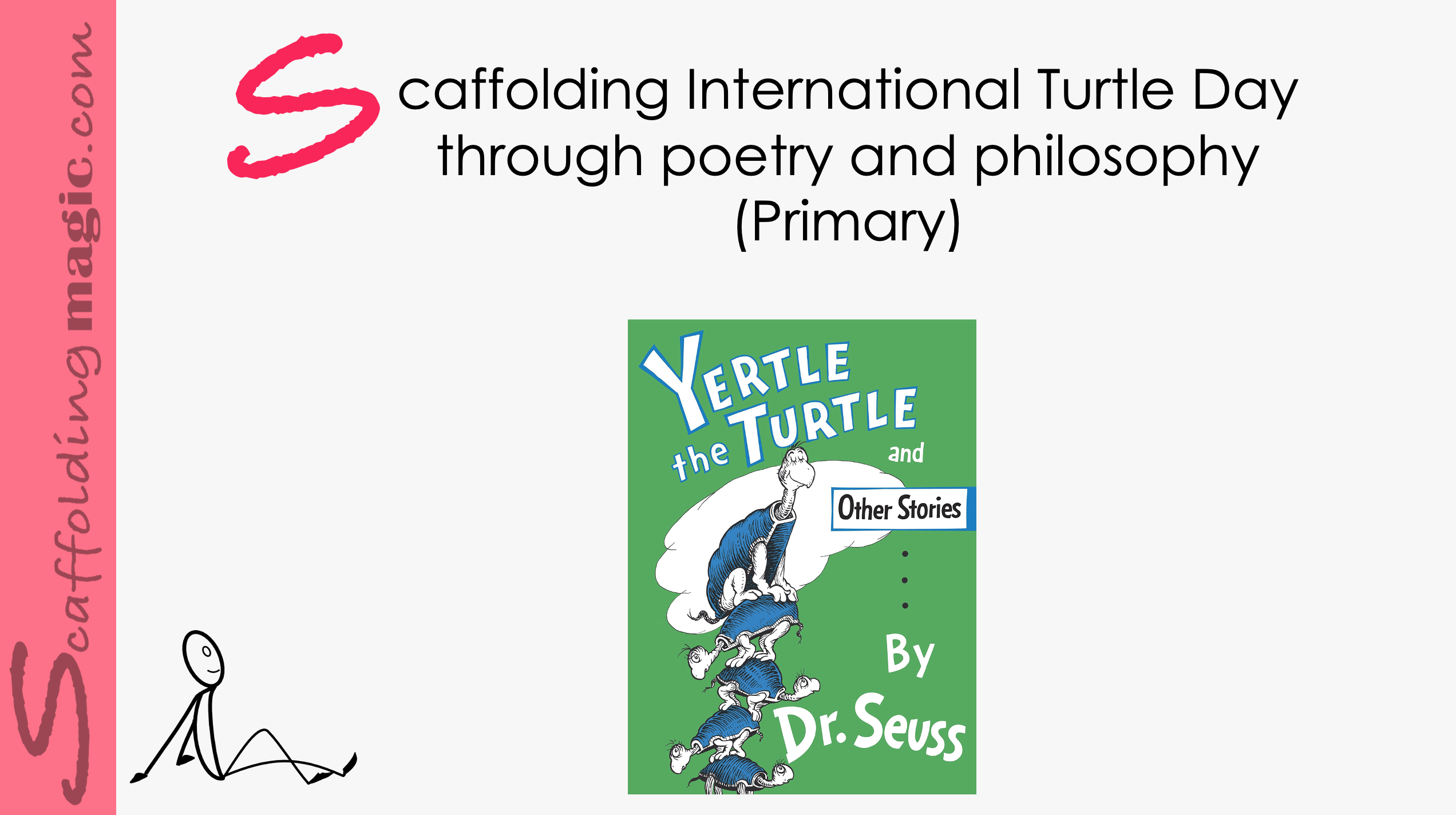- a children’s book writer…
- a poet…
$5.00
Seriously? A children’s book about turtles is philosophical? Oh yes it is! Theodor Seuss Geisel (Dr. Seuss), was not just a writer of children’s books, but a profound philosopher, a poet, a political advocate (sometimes controversial), and a promoter of critical thinking on all levels.
Studies show that while memorising academic language is effective in the short term – to pass exams, for instance, in the long-term it is an ineffective way of learning terms that students can use in context*. Without having analysed, compared, categorised, and defended their own ideas through the use of these terms, most students will forget their meanings as quickly as they learned them.
What can we do? The solution is easy. We create opportunities for our students to analyse, compare, categorise, and defend their own ideas through the use of these terms.
An important factor in translanguaging is knowing the different registers – when to use different tones, words, phrases. It’s important to know which terms are appropriate for specific circumstances. Especially in those languages (such as English) in which there is no formal or informal pronouns, register and tone transmit crucial information. To give our students an even wider prospects in their scholastic and professional lives, being comfortable with – or at least recognising – register is of the highest importance.
An important factor in translanguaging is knowing the different registers – when to use different tones, words, phrases. It’s important to know which terms are appropriate for specific circumstances. Especially in those languages (such as English) in which there is no formal or informal pronouns, register and tone transmit crucial information. To give our students an even wider prospects in their scholastic and professional lives, being comfortable with – or at least recognising – register is of the highest importance.
Academic language is so important that experts assert that the warehouse of words a person has stored away is directly connected to their quality of thinking: higher quality of words equals higher quality of thinking.** In this age of the Fourth Industrial Revolution, the quality of thinking our students reach in our classes, will be the difference between being qualified for jobs that technology is (still) not capable of performing, and watching the world from the sidelines.
This applies even to our youngest learners. We can help them to assimilate academic language even before they begin to read. If we verbalise first-, second- and third-tier words,*** through dynamic activities, we are helping them to become familiar with academic language that will serve them for the rest of their academic and professional lives.
Academic language is so important that experts assert that the warehouse of words a person has stored away is directly connected to their quality of thinking: higher quality of words equals higher quality of thinking.** In this age of the Fourth Industrial Revolution, the quality of thinking our students reach in our classes, will be the difference between being qualified for jobs that technology is (still) not capable of performing, and watching the world from the sidelines.
This applies even to our youngest learners. We can help them to assimilate academic language even before they begin to read. If we verbalise first-, second- and third-tier words,*** through dynamic activities, we are helping them to become familiar with academic language that will serve them for the rest of their academic and professional lives.
Writing is one of the four cornerstone skills of every inclusive educational curriculum. It helps us form our thoughts into coherent verses and communicate over distance and time. It is a skill usually approached as a way of appeasing bands for standardised exams, but, in fact, is the perfect tool to foster the development and expression of empathy.
Empathy is a way of connecting with other people in such a way so that you show you understand what they’re experiencing – and that you respect their experience as something meaningful – even though you may not understand exactly how it feels for them. In other words, empathy is about finding a way to connect.
Writing is one of the four cornerstone skills of every inclusive educational curriculum. It helps us form our thoughts into coherent verses and communicate over distance and time. It is a skill usually approached as a way of appeasing bands for standardised exams, but, in fact, is the perfect tool to foster the development and expression of empathy.
Empathy is a way of connecting with other people in such a way so that you show you understand what they’re experiencing – and that you respect their experience as something meaningful – even though you may not understand exactly how it feels for them. In other words, empathy is about finding a way to connect.
